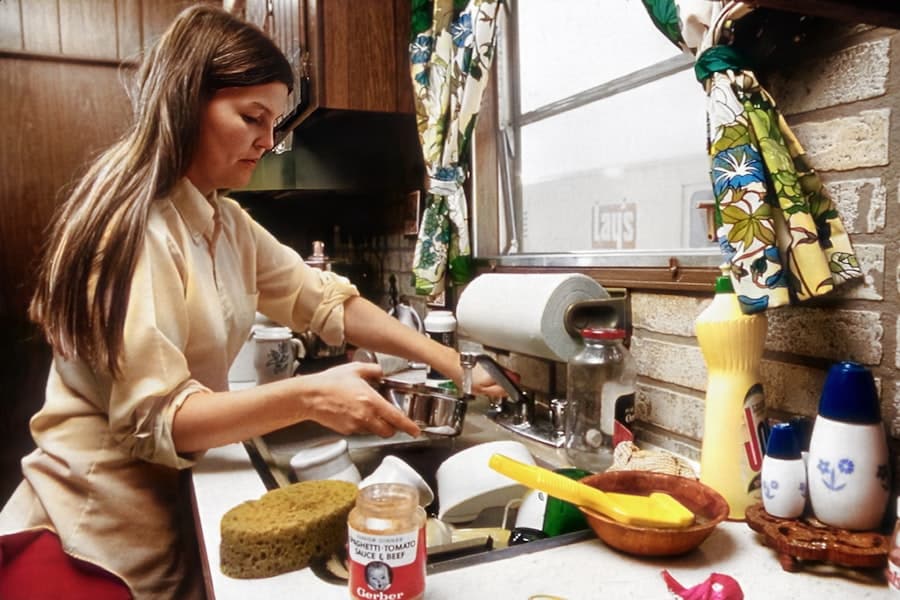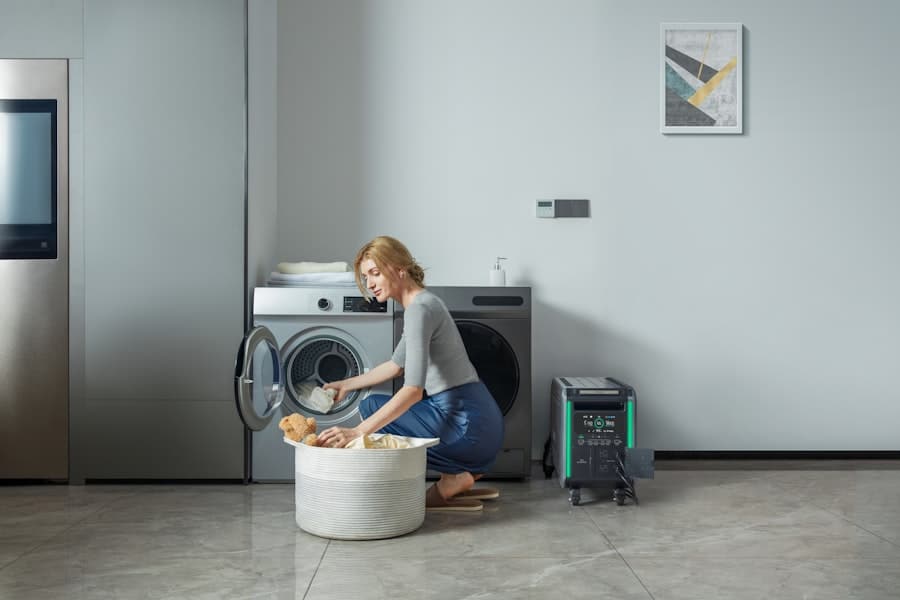The integration of artificial intelligence (AI) into everyday life has revolutionized numerous sectors, and household chores are no exception. As technology continues to advance, the concept of a smart home has transitioned from a futuristic dream to a tangible reality. AI-powered devices are increasingly becoming commonplace, assisting individuals in managing their daily tasks with unprecedented efficiency.
From robotic vacuum cleaners that autonomously navigate living spaces to smart ovens that can cook meals with minimal human intervention, AI is reshaping how we approach household responsibilities.
By automating mundane tasks, individuals can redirect their energy toward more fulfilling activities, whether that be spending time with family, pursuing hobbies, or simply enjoying leisure time.
As we delve deeper into the current state of AI in household chores, it becomes evident that this technology is not merely a luxury but a transformative force that is redefining domestic life.
Key Takeaways
- AI is revolutionizing household chores by automating and simplifying tasks.
- Current AI technology can perform a range of household chores, from cleaning to cooking.
- Advantages of AI in household chores include time-saving, efficiency, and convenience.
- Challenges and limitations of AI in household chores include cost, reliability, and adaptability to different tasks.
- Future developments in AI for household chores may include more advanced robotics and personalized task management.
Current State of AI in Household Chores
The current landscape of AI in household chores is characterized by a diverse array of products and services designed to simplify daily tasks. Robotic vacuum cleaners, such as the Roomba and Roborock, have gained immense popularity for their ability to autonomously clean floors while navigating around furniture and obstacles. These devices utilize advanced sensors and algorithms to create maps of living spaces, allowing them to optimize cleaning routes and ensure thorough coverage.
The convenience they offer has made them a staple in many households, showcasing the practical applications of AI in maintaining cleanliness. In addition to robotic vacuums, smart appliances have emerged as another significant facet of AI in household chores. Smart refrigerators can monitor food inventory and suggest recipes based on available ingredients, while smart washing machines can optimize wash cycles based on fabric type and load size.
These appliances often connect to mobile apps, enabling users to control and monitor their functions remotely. The integration of AI into these devices not only enhances their efficiency but also provides users with valuable insights into their household management, making it easier to maintain an organized and functional home environment.
Advantages of AI in Automating Household Chores

One of the most compelling advantages of AI in automating household chores is the significant reduction in time and effort required for routine tasks. For instance, robotic vacuum cleaners can operate independently, allowing homeowners to engage in other activities while their floors are being cleaned. This time-saving aspect is particularly beneficial for busy families or individuals juggling multiple responsibilities, as it frees up valuable hours that can be spent on more meaningful pursuits.
Moreover, AI-driven appliances often come equipped with features that enhance their functionality beyond mere automation. For example, smart ovens can learn cooking preferences and adjust cooking times and temperatures accordingly, ensuring perfectly cooked meals every time. This level of customization not only improves the cooking experience but also encourages healthier eating habits by making meal preparation more accessible.
The ability to automate mundane tasks while simultaneously enhancing the quality of outcomes represents a significant leap forward in household management.
Challenges and Limitations of AI in Household Chores
Despite the numerous advantages that AI brings to household chores, several challenges and limitations persist. One primary concern is the initial cost associated with acquiring smart appliances and robotic devices. While prices have decreased over time, high-quality AI-driven products can still represent a significant investment for many households.
This financial barrier may prevent some individuals from accessing the benefits of automation, leading to disparities in how different demographics experience the advantages of AI. Additionally, there are technical limitations that can hinder the effectiveness of AI in household chores. For instance, robotic vacuum cleaners may struggle with complex floor plans or high-pile carpets, leading to incomplete cleaning or operational failures.
Furthermore, reliance on technology raises concerns about potential malfunctions or software glitches that could disrupt daily routines. As with any technology, there is also the risk of obsolescence; as newer models are released with advanced features, older devices may become outdated and less effective over time.
Future Developments in AI for Household Chores
Looking ahead, the future of AI in household chores promises exciting developments that could further enhance its capabilities and integration into daily life. One area of focus is the advancement of machine learning algorithms that enable devices to learn from user behavior and preferences over time. This could lead to even more personalized experiences, where appliances anticipate needs and adjust their functions accordingly without requiring explicit input from users.
Moreover, the potential for increased interoperability among smart devices presents an opportunity for creating cohesive ecosystems within homes. Imagine a scenario where a smart refrigerator communicates with a robotic chef to prepare meals based on dietary preferences while coordinating with a smart oven for optimal cooking times. Such advancements could streamline household management significantly, allowing for seamless transitions between various tasks and reducing the cognitive load on individuals responsible for maintaining their homes.
Impact of AI on Daily Life and Workload

The impact of AI on daily life extends beyond mere convenience; it fundamentally alters how individuals approach their workloads and responsibilities at home. By automating repetitive tasks, AI allows people to reclaim time that can be invested in personal development or family bonding. This shift not only enhances productivity but also contributes to improved mental well-being by reducing stress associated with managing household chores.
Furthermore, as AI continues to evolve, it may lead to changes in societal norms surrounding domestic responsibilities. With more households adopting smart technologies, there could be a gradual shift in expectations regarding who is responsible for chores. This democratization of household management may encourage shared responsibilities among family members or even foster new business models centered around home management services powered by AI.
Ethical and Privacy Considerations in AI for Household Chores
As with any technological advancement, the integration of AI into household chores raises important ethical and privacy considerations that must be addressed. One significant concern revolves around data privacy; many smart devices collect vast amounts of data about user habits and preferences. This information can be invaluable for improving product functionality but also poses risks if mishandled or exploited by third parties.
Moreover, there are ethical implications related to job displacement as automation becomes more prevalent in domestic settings. While AI can alleviate burdensome tasks for individuals, it may also lead to reduced demand for certain jobs traditionally performed by humans, such as cleaning services or personal assistants. Striking a balance between leveraging technology for efficiency while ensuring fair labor practices will be crucial as society navigates this evolving landscape.
The Potential of AI in Transforming Household Chores
The potential of AI in transforming household chores is vast and multifaceted, offering opportunities for enhanced efficiency, improved quality of life, and innovative approaches to domestic management. As technology continues to advance, the integration of AI into our homes will likely become even more seamless and intuitive, allowing individuals to focus on what truly matters—spending time with loved ones and pursuing passions outside of routine responsibilities. While challenges remain regarding accessibility, technical limitations, and ethical considerations, the trajectory of AI suggests a future where household chores are not merely tasks to be endured but opportunities for innovation and improvement.
Embracing this potential will require thoughtful engagement with the technology itself as well as an ongoing dialogue about its implications for society at large. As we stand on the brink of this transformation, it is clear that AI has the power to redefine our relationship with our homes and the way we manage our lives within them.
In exploring the future of AI in automating household chores, it’s essential to consider the broader technological landscape that supports these advancements. A related article,

